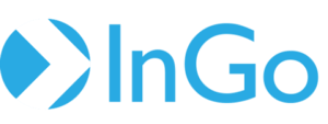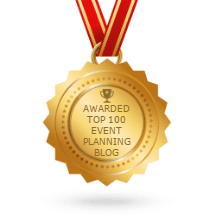Event marketers have to ask themselves a lot of questions when developing their event strategy, as well as when planning and executing those events. From which vendors to choose to where to hold an event, it can be easy to lose sight of the most important questions: “what does my audience want?” Figuring that out can be the difference between an engaging and memorable event and one that leaves attendees unengaged and uninspired. But the answer is actually quite simple and is evidenced in our everyday lives: personalized experiences.
In a time where we’re given personalized recommendations for everything from our TV shows to what we eat, most consumers have become accustomed to connecting and engaging with brands in a unique way. So how can you bring that to your events? Keep reading for our four tips on creating a personalized event experience for your audience.
Engage Your Audience Purposefully to Gather Valuable Data
Digital transformation has affected just about every industry out there and event marketing is no exception. With the increased use of digital technologies for elements such as invites, registration, and event follow-up, capturing valuable event data is easier than ever. With the use of questionnaires and surveys both before and after an event, attendees can tell you directly about their preferences, enabling event teams to deliver an experience that can engage every attendee with relevant information. For example, leveraging interactive features like push notifications, gamified content, and surveys, you can collect more data that will help you better understand attendee behavior and preferences. Whether it’s registration, the main stage, or breakout sessions, you’ll be able to identify patterns and trends that can deliver what attendees want.
Leverage referral marketing information
Referral marketing allows you to harness the networks of your speakers, sponsors, and attendees to drive more attendance and engagement. Here at InGo, we’ve simplified this process into one easy platform where your speakers, sponsors, and attendees can quickly share that they’re attending your event. Your current event attendees know dozens of other industry contacts who should also be at your event and InGo makes it easy for attendees to influence others to join them. Using referral marketing allows you to see which speakers, sponsors, or attendees were able to get the most people to attend your event and you can leverage that information to understand the type of person, and the kind of content, that resonates with your target audience. With this strategy, you know that you’re getting the right people to your event who will be most interested in your products or services, and are likely to convert into a customer.
Use the Right Tools to Measure Performance and Success
Event marketers can use metrics to lend further credibility and value to personalizing content and experiences as well as partnerships. For example, data on booth traffic and metrics on sponsored banner ads can help marketers see who attended and what actions they took (i.e., which booth they visited). This information can help gauge the success of the event based on the attendee’s journey – start to finish. This can also be useful for future events as you determine which booths or content tracks were most popular, what you should consider replicating at future events, and what might need improving. You can input insights like these into event marketing tools, such as InGo, to help make sense of your data and tailor your future outreach to attendees’ interests.
Create, Curate, and Personalize Content
The final step in creating a more personalized event is to create a memorable experience that is meaningful and relevant to your audience. People have information coming at them from multiple sources all day long so it’s critical that your content cuts through the noise and makes an impact. Discover what your audience is genuinely interested in, their challenges, and what is important to them and their work. You can get this information using the same tactics that we’ve covered in this article as well engaging with your audience through emails and social media throughout the year.
The Bottom Line
Event marketing has become more complex over the years, especially with the COVID-19 pandemic forcing event planners to get creative with virtual and hybrid events. The stakes are higher and customers are expecting more. Generic, one-size-fits-all experiences will no longer satisfy event goers, and you could find yourself with less than successful events if you go that route.
Instead, you’ll need to get creative and develop engaging and personalized experiences for your audience. You can be intentional in capturing audience data, use the power of referral marketing, leverage the right event planning tools, and create the right content to tailor your event to what your audience wants and needs.
If you’re in the process of building your brand’s community and need help solving your biggest event marketing challenges, reach out to InGo today. We’re the #1 tool for community referral marketing and we can help your business skyrocket event attendance, squash no shows, and keep your community engaged and interested.


